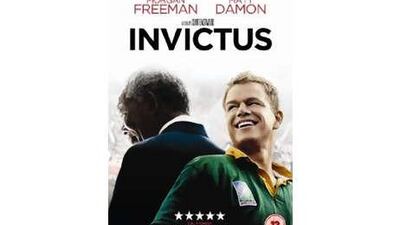As the final credits roll on Invictus, an image of Nelson Mandela appears onscreen, and there's a judder of recognition - oh, right, so that's what he looks like. This moment is a testament to the technique and commitment of Morgan Freeman, who doesn't so much play the former South African president as channel him. The film begins with Mandela's release from prison, where he languished for 27 years, and culminates in a rugby match - which would seem to be an oddly reductionist approach to such an epic tale. But then rugby, in this film, is more than a game: it is both a symbol and a manifestation of the apartheid era, a privileged pursuit that's been dominated and jealously guarded by the country's white population. It happens that, as Mandela took power, the South African national team had entered into a period of decline (another layer of symbolism). Mandela's idea is to inspire the Springboks to victory in the 1995 Rugby World Cup finals, demonstrating what a truly united South Africa can achieve. There's a sniff of Victory here, echoes of Michael Caine and Sylvester Stallone giving the Nazis a kicking on the football field. The director, Clint Eastwood, is so keen to avoid this sort of inspirational fluff, however, that he commits an even greater transgression: being dull. A bulked-up, mumble-mouthed Matt Damon plays the 'Boks captain, and while Freeman is better at doing understated, even his performance cannot lift the film. By the time we get to the rousing finale - victory over the fearsome New Zealand All Blacks - caring about the outcome takes effort. Nelson Mandela deserves better than this, and so do we.

Invictus
A film about South Africa after apartheid that pulls its punches and ultimately does little justice to its subject.
Most popular today
